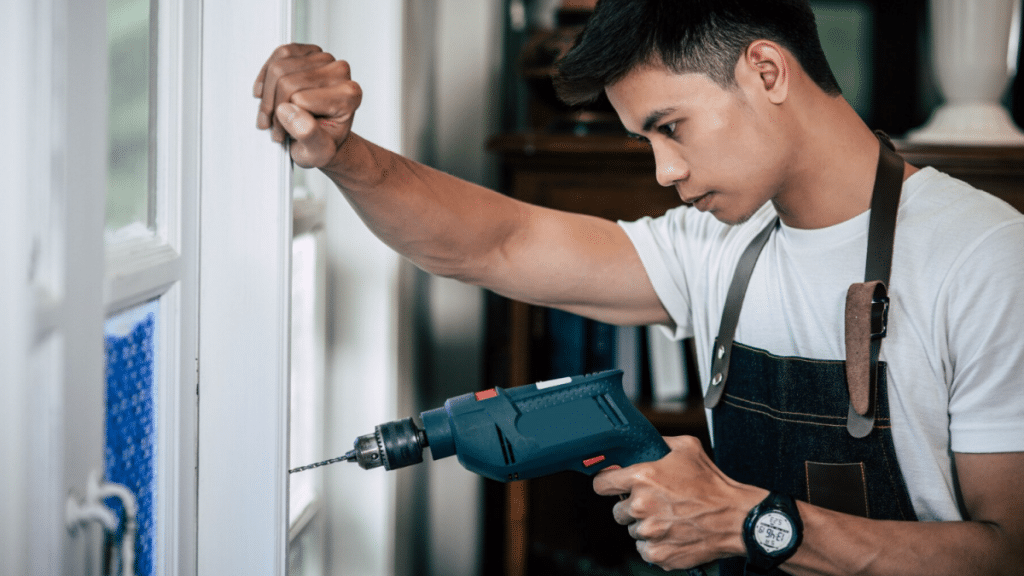When it comes to enhancing the aesthetic appeal and energy efficiency of your home, windows play a pivotal role. Not only do they provide natural light and ventilation, but they also significantly impact your home’s overall comfort and security. Just as fire protection professionals ensure safety and compliance in buildings, choosing the right windows and windows installation service is crucial for maximizing the benefits they offer. This guide will walk you through the various types of windows, the importance of professional installation, and tips for maintaining your windows.
The Importance of Choosing the Right Windows
Selecting the right windows for your home involves considering factors such as design, energy efficiency, and durability. Windows are a long-term investment, and making the right choice can lead to significant savings on energy bills and enhanced home comfort.
Types of Windows
- Single-Hung and Double-Hung Windows: These are the most common types of windows found in homes. Single-hung windows have a fixed upper sash and a movable lower sash, while double-hung windows allow both sashes to move. Double-hung windows are easier to clean and provide better ventilation.
- Casement Windows: Hinged at the side, casement windows open outward like a door. They offer excellent ventilation and unobstructed views, making them ideal for areas where you want to enjoy the outdoors.
- Sliding Windows: These windows slide horizontally along a track. They are easy to operate and provide a wide view of the outside, making them suitable for areas with limited vertical space.
- Bay and Bow Windows: These windows protrude outward from the home’s exterior, creating a small shelf inside. Bay windows typically have three panels, while bow windows have four or more. They add architectural interest and can make a room feel larger.
- Awning Windows: Hinged at the top, awning windows open outward, providing good ventilation even during light rain. They are often installed higher on walls for privacy and security.
The Role of Professional Window Installation
Professional installation is crucial for ensuring that your windows function properly and provide the maximum benefits. Improper installation can lead to issues such as drafts, water leaks, and reduced energy efficiency.
Benefits of Professional Installation
- Expertise and Experience: Professional installers have the knowledge and experience to handle various types of windows and doors, including scenarios that involve sliding glass door installation. They can identify potential issues and address them before they become significant problems.
- Proper Sealing and Insulation: Proper sealing and insulation are essential for preventing drafts and maintaining energy efficiency. Professionals use high-quality materials and techniques to ensure a tight fit and optimal performance.
- Safety: Installing windows can be dangerous, especially for upper-story windows. Professional installers have the necessary equipment and training to perform the job safely.
- Warranty Protection: Many window manufacturers offer warranties that are only valid if the windows are installed by a certified professional. This provides peace of mind and protects your investment.
Maintaining Your Windows
Once your new windows are installed, regular maintenance is essential to keep them in good condition and prolong their lifespan. Here are some tips for maintaining your windows:
Cleaning
Regular cleaning helps maintain the appearance and functionality of your windows. Use a soft cloth or sponge with a mild detergent to clean the glass and frames. Avoid abrasive cleaners that can scratch the surface.
Inspecting Seals and Caulking
Periodically inspect the seals and caulking around your windows for cracks or gaps. Damaged seals can lead to drafts and water infiltration, reducing energy efficiency and potentially causing damage to your home’s structure. Reapply caulking as needed to maintain a tight seal.
Checking for Condensation
Condensation between the panes of double- or triple-glazed windows indicates a failure in the seal. This reduces the window’s insulating properties and requires professional repair or replacement.
Lubricating Moving Parts
Lubricate the moving parts of your windows, such as hinges and tracks, to ensure smooth operation. Use a silicone-based lubricant to avoid attracting dust and dirt.
Energy Efficiency and Window Selection
Energy-efficient windows can significantly reduce your home’s heating and cooling costs. Look for windows with the ENERGY STAR® label, which indicates that they meet or exceed energy efficiency standards.
Features of Energy-Efficient Windows
- Low-E Glass: Low-emissivity (Low-E) glass has a special coating that reflects heat while allowing light to pass through. This helps keep your home warm in the winter and cool in the summer.
- Double or Triple Glazing: Windows with two or three layers of glass provide better insulation than single-pane windows. The air or gas (such as argon) between the panes acts as an additional insulator.
- Warm Edge Spacers: These spacers reduce heat transfer around the edges of the window, improving overall insulation.
Conclusion
Choosing the right windows and ensuring professional installation are critical steps in enhancing your home’s comfort, energy efficiency, and aesthetic appeal. Just as fire protection professionals play a vital role in safeguarding properties, high-quality windows and expert installation protect your home from the elements and improve its overall performance. Regular maintenance and attention to energy efficiency can help you maximize the benefits of your windows, providing long-term value and satisfaction.
